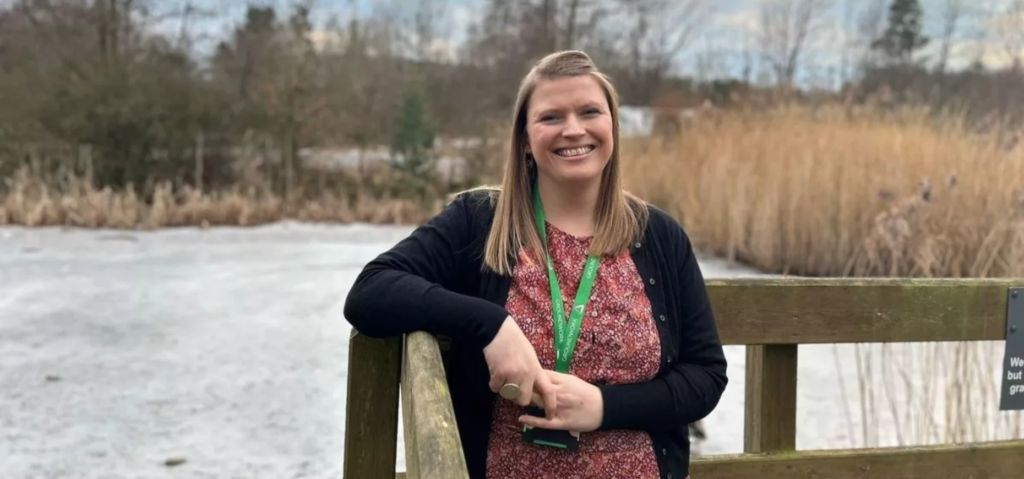Securing funding has become even more challenging

Community and environmental charity Groundwork NE & Cumbria has operated across the region for over 30 years. Its mission remains to transform the places and lives of some of the most disadvantaged communities in the region with a strong environmental and green thread running through its work. Laura Farrell-Pronesti, the newly appointed partnership development lead at Groundwork NE & Cumbria, discusses another feature of the charity’s work – the struggle for funding stability and security.
The funding landscape for charities has not improved over the past 30 years. In fact, since Brexit and the loss of European Funding, the situation has become even more challenging.
Some of our income streams dried up when the UK left the EU. At the same time, government grants and other traditional funding, including public donations and corporate sponsorship, became harder to secure. The changing political landscape combined with tough economic conditions were largely to blame, with a growing number of worthy causes competing for the charitable pound. This has left us, and similar charities, in a precarious position, having to adapt quickly to attract new funding.
Our project delivery can be hampered by this economic uncertainty and by the short-term nature of most funding streams, which complicates planning, delivery and staff retention. Most grants are issued on a 12 to 18-month cycle, which exerts tremendous pressure on project managers and creates cliff-edge funding holes in charity budgets. More worrying, though, is that it can be confusing for beneficiaries, especially in community support provision, when good quality, well-run, and hugely successful projects are forced to close only to reopen months, or years later with a new name and new backer when new funding becomes available.
The struggle to secure consistent and sustainable funding is real and is a major part of our business development strategy; it has even led to my recent appointment. Groundwork wanted a dedicated person responsible for seeking sponsorship, forging lasting business partnerships and identifying new funding opportunities.
In an ideal world, most charities would reduce their dependence on single-income provision and have their own unrestricted income streams. For us, this would give us the economic freedom to run innovative projects unconstrained by stakeholder and investor demands and allow us to continue our important work across all six of our project areas: Employment, Energy Efficiency, Green Teams and Land Management, Health and Wellbeing, Nature-Based Solutions, and Youth.
Diversifying our funding is no longer a luxury; it is a necessity. To remain resilient and financially stable, we must look beyond traditional funding models.
We have been fortunate and successful in partnering with some hugely supportive corporate donors who have given us the cash and the freedom to deliver innovative and ground-breaking projects across the region. Their help and financial support combine with our ongoing partnerships with public sector organisations and with government agencies operating in the environmental, conservation and ecological spheres.
Creating these long-lasting and mutually beneficial partnerships is one of our key priorities for 2025 and beyond, and the benefits delivered are not all one way. For businesses, partnering with Groundwork can add to the bottom line, build a company’s environmental and social credentials, and provide volunteering opportunities for staff and positive publicity for the organisation. Another bonus for businesses is the chance to support Groundwork projects and programmes in their local area. Supporting projects on the doorstep helps build community relations and strengthens an organisation’s local presence.
To capitalise on the growing popularity of crowdfunding, we have dipped our toe in the water by setting up our donation page through GiveMatch – Givematch | You Give, We Match. This is helping crowdfund for some specific projects and causes. Crowdfunding has become an extremely popular way for charities to raise money and we wanted to use the platform to reach a broader audience. This is a new venture for us, but it has allowed us to tell our story and share our specific goals with individual donors who might like to support our activities. For an organisation of our size, relying solely on crowdfunding isn’t feasible, but we are optimistic that GiveMatch will expand our supporter base, increase our visibility, and complement our larger fundraising efforts. We are also working hard to strengthen our existing corporate partnerships and forge new ones. We urge businesses to get in touch to find out how they can get involved in supporting their local environment and communities.
■ Laura.Farrell-Pronesti@groundwork.org.uk
